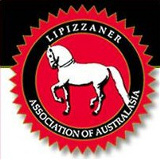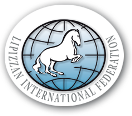Lipizzaner Association of Australasia
Zoltán Egri
Zoltán Egri was born in 1942. He died in later 2013.
Where ever he worked in numerous Hungarian traditional horse bases, he served and developed horse breeding and the sports with great commitment utilizing his very high level of knowledge. His entire work was characterised by modernisation and development based on retaining values in the studs where he had been employed.
During 1952 while at school, Mr Egri worked at the Breed Research Station at Székkutas in a physical job. From there he went into Agricultural studies. At the start of his career in 1966, he was employed as head of a stud farm where he was the chief animal breeder. In 1968, Mr Egri was employed in the Bábolna area where he was the head of a stud farm. From there, he moved over the years through other stud farms, (except for a short period in Pegazus Travel and Tourism) from where he moved to Szilvásvárad town in 1982. After some years Mr Egri became the Mayor of Szilvasvarad - for three terms until 2002 when he retired.
Mr Egri was a great sportsman and horseman in his own right. While at University he was on the show jumping team, from where he went to Eventing, where he competed successfully internationally until he was nominated as a reserve for the 1980 Olympic team. He won regional championships in dressage and in the four-in-hand he set up an unbeaten world record with his coach, dawn by his Lipizzaner horses. He won marathon coach races from Trieste to Verona, New York to Lake Mohonk and the Bábolna -Pannonhalma - Bábolna marathon carriage driving trials. In addition to this, Mr Egri raced as an amateur cross country rider at Horse Trials. In 2002 at age of sixty he bid farewell to competitive riding at a memorable contest he won on the Bogárzó racecourse.
As an experienced horse breeder a number of excellent horses are associated with his name including 'Adonisz', the most successful member of the Hungarian team at the 1972 Munich Olympics. As the driver of Kerteskö (Stud) horses he paid particular attention to the young stock in training. During the 10 years spent at the stud farm Bakony they raised six Derby winners including Bilbao, the Triple Crown winner. Aldato II became the Grand prize winning stallion at the '80's OMÉK.
It seems that Mr Egri was unofficially the director of Szilvásvárad Stud Farm, where he worked for three decades on improvement of the quality of their breeding material - he did research into which lines could benefit from infusion of high quality imported blood, and through his foreign contacts, he obtained the use of Pluto Roviga (the Piber bred sire of Australia's imported mare 227 Pluto XXIX-23), also Favory Dubovina, Neapolitano Brezovica and Siglavy Trofetta.
The Lipizzaners from Szilvásvárad became world famous in the hands of György Bárdos and Jósef Bozsik. Mr Egri actively participated as one of the organissers in the 1984 World Championships at Szilvásvárad. In 1985 at the OMÉK he won the 'Stud Stallion Conversano XXIII' grand prize, two gold medals for breeding mares and the Performance Grand prize of the stud.
Outstanding amongst his record of social duties are work carried out as Chairman of the National Society of the Hungarian Lipizzaner Horse Breeders until 2013, compilation of the first Hungarian Lipizzaner Stud Book and the editing of the World Lipizzaner Stud Book (meaning: the book "Lipizzaner im Spiegel der Wissenschaften". He represented Hungary at the first congress of the International Lipizzaner Association. Mr Egri continued to contribute by being a refereee at some of the most significant carriage driving trials in Europe.
Mr Egri's favourite pastime was making tack and carriage harnesses for horses. He had learnt the saddler profession as a student when he took a keen interest in designs and quality of saddles. At the 1997 Riesenbeck World Championships five foreign carriages competed in 'Egri' saddlery.
Mr Egri was a humble and unassuming man who was enormously popular with all who came in contact with him.
Australia and New Zealand will always be indebted to Zoltan Egri for his research into our unidentified mare line which he clarified as 4 sz Mesohegyesi and as such, extinct in the rest of the world. When at the LIF meeting it was announced what the outcome of the research had been, Mr Egri in his usual manner took no personal credit for his work. When the LAA Registrar discovered who had put the time and effort into this research, Mr Egri was deeply thanked on behalf of all members; it was such a pleasure to see Mr Egri so touched by the gesture.
Sadly, he passed away not long afterwards.
At the LIF GA atSzilvásvárad Stud farm in late October 2013, a beautiful memorial meeting was held with Mr Egri's family, old family friends and colleagues and LIF GA attendees. There is a case dedicated to his memory in the Pluto Museum.

